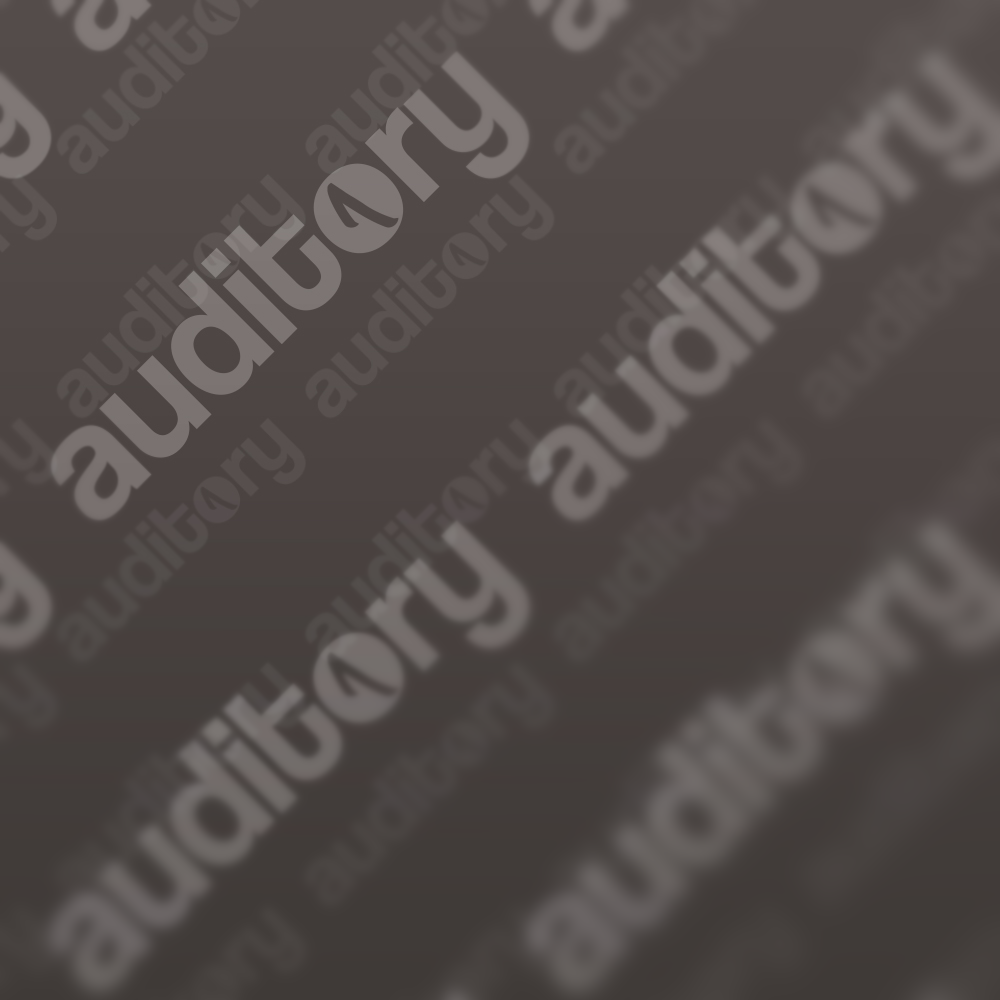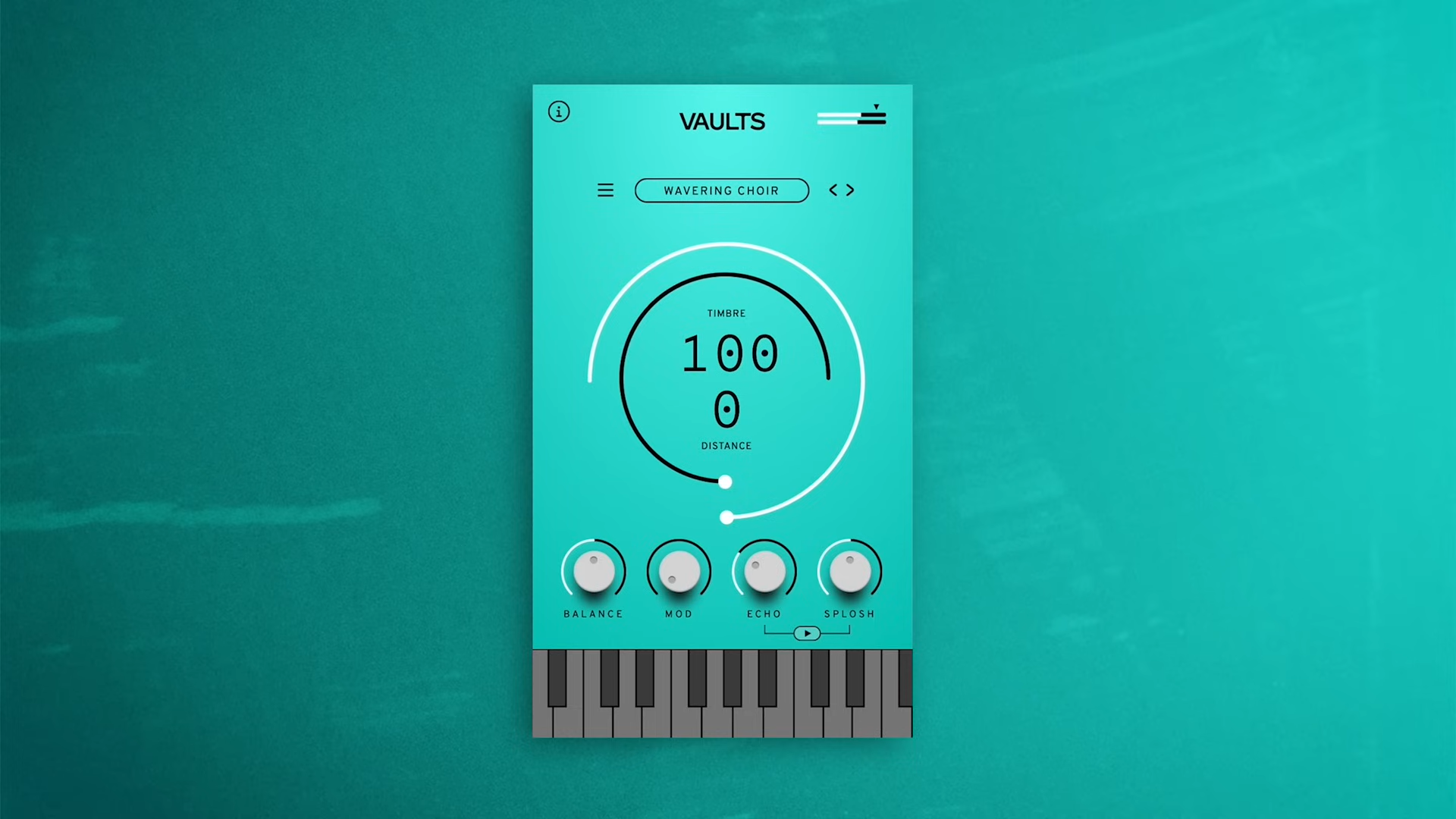The Crow Hill Company has issued the latest sample library in the free Vaults series. The newest VST plugin instrument presents us with Wavering Choir – a vocal ensemble patch containing recordings of Scottish singers from classical, Celtic and Gaelic musical backgrounds.
Interface, Sound and Dynamic Options
Instrument Dynamics & Expression Controls
There are three parameters to control the dynamics. But before I get into those more specifically I want to point at one thing that I found a bit odd, or maybe more disorienting – and that’s the decision to place the Balance parameter only as a sub-control.
Now, if you look at the interface, they used the big centered knob for Timbre and placed a Distance parameter right along with it – as if it’s another, main expression parameter. But it’s not – and it’s not only an “aesthetics” thing for me to complain about.
The Distance parameter exists to do a very specific thing basically – and that is to control the perceived distance of the signal from the listener’s perspective. Usually, what sample library developers would do is apply effect-based audio manipulations to the signal in order to convey a psychoacoustic illusion of proximity. But not in this case, because according to the developers of Crow Hill and the Vaults Wavering Choir, the Distance parameter here actually blends a Close spot microphone along with a more farther away Decca Tree signal (which is an array of microphones used primarily in larger-scale sessions, like orchestral recordings).
On its own, it could be a useful feature, but the parameter is way too mild to be placed at the very center of a GUI.
Now, the Balance parameter on the other hand seems to do much, much more from a sound design perspective. What it does function-wise is it controls the relative ratio between the male choir samples on the lower vocal register and the female choir samples on the higher register – so when you push the parameter all the way to 100 for example, you get much more of the female voice, and ultimately a softer, quieter sound. But it is also a full-on expression parameter, as it directly controls the volume of the output signal.
The Timbre parameter mentioned beforehand – which is bind to your MIDI controller’s mod wheel by default (via a CC#1 assignment) – affects the gain level as well – but it also evolves the dynamics by adding not only more volume, but also more choral voices to the mix so the ensemble grows bigger and bigger (or the opposite) depending on the parameter’s value. It is possible that the developers used filters and/or other audio manipulations to achieve this particular dynamic effect.
Vaults Wavering Choir and LABS Gaelic Voices: A Little Comparison
Vaults Wavering Choir by The Crow Hill Company features evolving vocal swells.
Considering the history of Crow Hill’s founder, Christian Henson, this library throws me to one of the more recent patches in the free Spitfire Audio series LABS – and I am talking about LABS Gaelic Voices, released in late 2022 and just a few months prior to Henson’s departure from his former company.
Although different in many ways, the libraries do share some similarities in tone as well as features. Actually, there is even a preset which is called “Wavering” in one of Gaelic Voices’ patches.
Vaults Wavering Choir vs. LABS Gaelic Voices: Which library is more versatile?
When it comes to playability, sampling depth and overall versatility, the Vaults library – despite not offering a variety of patches or a wide-ranging selection of vocal vowels – has much more features for what it does offer you with, and is also more flexible with its existing assets.
Wavering Choir, for comparison, has 3 round robins while the LABS counterpart only has 1. Also, the new Vaults freebie gives considerably more control over the dynamics and also when it comes to effects.
Gaelic Voices also features its own Distance parameter – and has the same functionality as the new Vaults (a crossfade A-B kind of mix of two microphone signals), while offering only reverb as an audio effect in addition to a Release envelope control.
With Vaults Wavering Choir, once you push a key, as the sound decays the notes slowly turn into unstable pitches that tend to drift from time to time. I know it’s intentional and obviously a stylistic decision, but I generally prefer my sounds and samples nice and clean – and that is possible with LABS.
When it comes to audio effect parameters, Crow Hill have included Mod – a modulation parameter which is more of a phaser – and a set of delay and reverb modules named Echo and Splosh.
Which choir library is more “Scottish”?
Well, despite its Scottish origins, as described by The Crow Hill Company, Vaults Wavering Choir is in no means a folk-themed library. Unlike LABS Gaelic Voices, the choral sounds featured in Vaults seem pretty neutral – although it does appear like they aimed for a more specific genre (ambient).
Ultimately, if you’re looking for that particular Celtic kind of sound and a more “native” library, then LABS Gaelic Voices will provide just that. The free Spitfire VST is available via the new subscription-based LABS+ program as a Windows 64-bit & macOS compatible VST plugin (VST2/VST3, AU, AAX).
Vaults Wavering Choir by The Crow Hill Company is available through The Crow Hill App. Plugin can be downloaded in the following formats: VST (VST3), AU & AAX for PC/Windows 64-bit and Mac.
Important note on the free Vaults series
Since moving on from the initial beta stage, The Crow Hill Company has made a decision to make all of the free plugins under Vaults time-limited.
This means that Vaults plugins now have a life span of exactly 6 months (and that applies to every new release).
As a result, formerly available free VST plugins such as R&D Strings and the Attic Grand piano are no longer available for download. Later this month, Crow Hill’s popular free celesta VST will also join that list – however, as of now, you still have the chance to download it for free (if you wish to do so).






